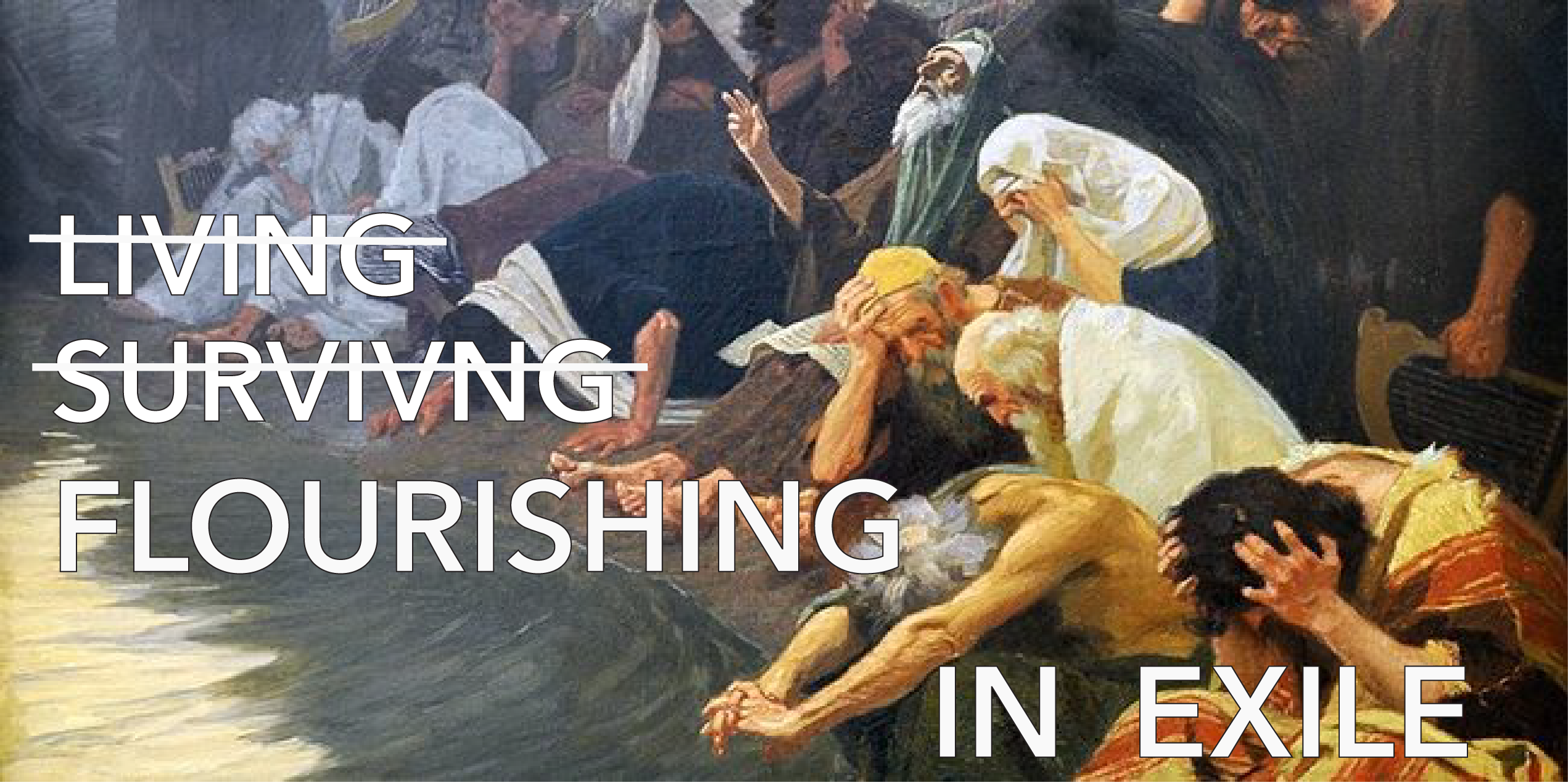
We live in a time of greater cultural shift and change. Phyllis Tickle called it the “Great Emergence,” comparing it to a 500-year yard sale where all our possessions are put on the lawn and we have to decide what we’ll sell in order to downsize and what we’ll keep in order to preserve and flourish in the future. This week of summits has seen an even more vehement polarizing conversation opposing treason and patriotism, faith and foolishness, hope and naivety, collaboration and resistance.
Our scriptures this week address a similar situation, albeit thousands of years ago. As Ecclesiastes says, “there is nothing new under the sun” – history repeats itself. Psalm 137 is a worship song written in the wake of the destruction of Jerusalem by the Babylonian Empire in 587 BCE. From their forced-deportation, the poet writes of the grieving people. Reminded of home, dreaming of the past, they lament their lot. They desire revenge upon those that attacked them: vengeance with a bitterness that can only be quenched by the genocidal murdering of the infant children of their enemies. In their defeat, deportation and depression they struggle even to know how, let alone if, they can worship the God they call El Shaddai: God Almighty.
Jeremiah lives, acts and speaks as prophet during this epochal earth-shattering time. Chapter 29 tells us of a letter that he sends from Jerusalem to the exiles in Babylon. There is great unrest among the people, most likely provoked by Jewish prophets who were assuring the exiles that they would soon be going home, that the foreign empire would soon fall. This could have been to incite a rebellion or to make people feel better. The exiles were faced with the choice of either resistance (violent or non-violent) and/or collaboration. Would they be like the Parisians who fell in love with the occupying German soldiers? Or would they join the resistance seeking to throw them out of France? Here in his letter (verses 4-7) Jeremiah offers a third-way both resistance and collaboration: seek the welfare of the country in which you are as when they do well you will do well. Disregard the fake news of the prophets among you, settle down, prepare for a long-stay, live a normal life as peaceable subjects of Babylon, recognizing that your good is part of the greater good; that Yahweh is the Sovereign Lord Almighty of All and will use all to accomplish the divine plan.
Questions for the practice of Examen & Contemplation
- What grabs your attention in these passages?
- Is Jeremiah crazy? How can one flourish in exile?
- How are you struggling, feeling overwhelmed by depression, despair or defeat in the great cultural changes of today?
- Is cultural change necessarily a negative or harmful thing?
- How might God be calling you?; us? …to a third-way of beyond the polarizing dualism of resistance and collaboration?